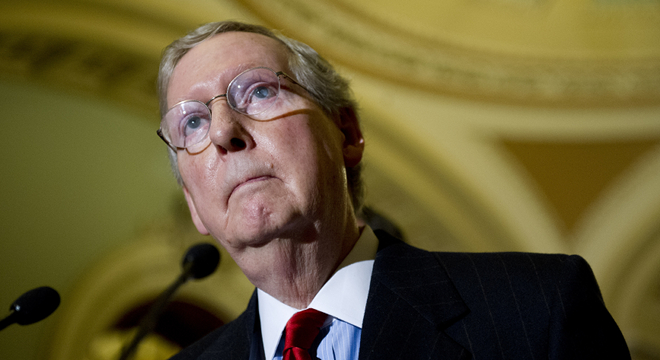We’ve seen these budget talks break down so many times now that it’s hard to get too exercised about it, including today, when there’s almost no time left for negotiators to reach even a modest accommodation.
The drama might be more pitched if the consequences of blowing past the tax and sequestration deadlines were more immediate and onerous, but realistically if everything falls apart tonight and tomorrow, it can be put back together again fairly quickly next year.
What we’re witnessing in these waning hours, though, reveals a lot about the current balance of power in Washington, and the way the parties are responding to the outcome of the election.
- Plenty of forces are aligned against a deal right now. Democrats can probably get a better revenue deal next year if all the Bush tax cuts expire, and Republicans will have an easier time supporting such an agreement when it’s not construable as anything other than a tax cut.
- Democrats want Republicans to agree to raise the debt limit now, and enough to avoid a new round of brinksmanship for at least a year. Republicans — or at least the party base — want to leave that piece out of the puzzle so they can turn to a more balanced, and higher-stakes fight early next year.
- GOP leaders want Democrats to regard any agreement that allows tax rates on top earners to rise as a concession in and of itself — one that Democrats ought to meet with a spending-side concession of their own. Democrats want to bracket the higher tax rates (taxes are going up anyhow, so why should they regard this as a concession?) and then horse trade over ancillary issues like emergency unemployment benefits, the sequester, the debt limit, Medicare physician payments and so on.
- Republicans also have a penchant for resetting the scales after cutting deals. They refuse to count those discretionary spending cuts Dems agreed to in 2011 toward Congress’ broad effort to draw down budget deficits, and so Democrats are heavily reluctant to offer up any spending cuts right now — particularly with a debt limit fight on the horizon.
- On top of that, John Boehner has shown little willingness to toss legislation on to the House floor that doesn’t have the support of a majority of his conference. Why should anyone in the Senate stick their necks out for a deal Boehner might submarine?
All of this augurs against a deal. But there are forces at work in the other direction as well. For instance, as far as the public is concerned, the GOP is an embarrassment right now. That might not matter to individual House Republicans in gerrymandered districts, but for less protected members and for the party at large it’s a big problem — one that cutting a deal (possibly even a deal that raises the debt limit) might begin to solve.
Mitch McConnell in particular is performing a high-wire act. He’s responsible to the party, but he also wants to avoid a primary challenger in 2014, and he also also wants to keep his hands clean if December 31 comes and goes without a deal. So he’s driving a hard bargain, but he’s also reached out to his old friend Joe Biden for help. By Harry Reid’s own admission, McConnell has been negotiating in good faith toward an agreement, yet an agreement eludes them because the GOP is too constrained. He wants to avoid a situation in which he’s forced to choose whether to filibuster a last-minute Dem fiscal cliff plan (and thus bear the blame for the consequences) or to convince his members to allow the plan to come to the floor and pass on a majority rules basis (and thus risk the ire of the GOP base).
And for all the conservative grumbling about Boehner, the right has no heir apparent in the House who could plausibly challenge him for the sin of putting legislation on the floor that the majority of members of Congress support.
That’s why nobody ran to the cameras today to predict that the negotiations had failed.






